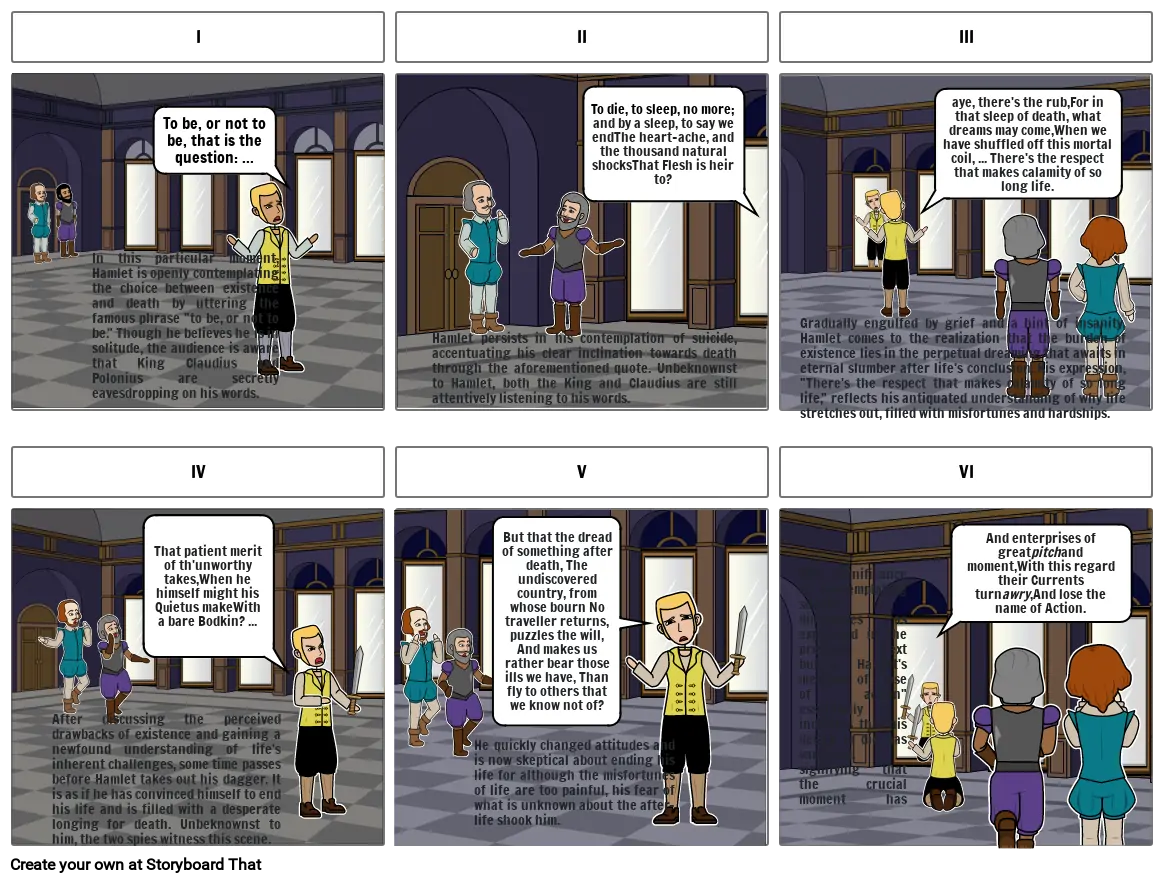english 4 edgunity

Süžeeskeem Tekst
- I
- In this particular moment, Hamlet is openly contemplating the choice between existence and death by uttering the famous phrase "to be, or not to be." Though he believes he is in solitude, the audience is aware that King Claudius and Polonius are secretly eavesdropping on his words.
- To be, or not to be, that is the question: ...
- II
- To die, to sleep, no more; and by a sleep, to say we endThe heart-ache, and the thousand natural shocksThat Flesh is heir to?
- III
- Gradually engulfed by grief and a hint of insanity, Hamlet comes to the realization that the burden of existence lies in the perpetual dreaming that awaits in eternal slumber after life's conclusion. His expression, "There's the respect that makes calamity of so long life," reflects his antiquated understanding of why life stretches out, filled with misfortunes and hardships.
- aye, there's the rub,For in that sleep of death, what dreams may come,When we have shuffled off this mortal coil, ... There's the respect that makes calamity of so long life.
- IV
- That patient merit of th'unworthy takes,When he himself might his Quietus makeWith a bare Bodkin? ...
- V
- Hamlet persists in his contemplation of suicide, accentuating his clear inclination towards death through the aforementioned quote. Unbeknownst to Hamlet, both the King and Claudius are still attentively listening to his words.
- But that the dread of something after death, The undiscovered country, from whose bourn No traveller returns, puzzles the will, And makes us rather bear those ills we have, Than fly to others that we know not of?
- VI
- The significance of contemplating suicide diminishes as expressed in the previous text bubble. Hamlet's mention of "lose of action" essentially indicates that his desire to die has vanished, signifying that the crucial moment has passed. The soliloquy concludes.
- And enterprises of greatpitchand moment,With this regard their Currents turnawry,And lose the name of Action.
- After discussing the perceived drawbacks of existence and gaining a newfound understanding of life's inherent challenges, some time passes before Hamlet takes out his dagger. It is as if he has convinced himself to end his life and is filled with a desperate longing for death. Unbeknownst to him, the two spies witness this scene.
- He quickly changed attitudes and is now skeptical about ending his life for although the misfortunes of life are too painful, his fear of what is unknown about the after-life shook him.
Loodud üle 30 miljoni süžeeskeemi

